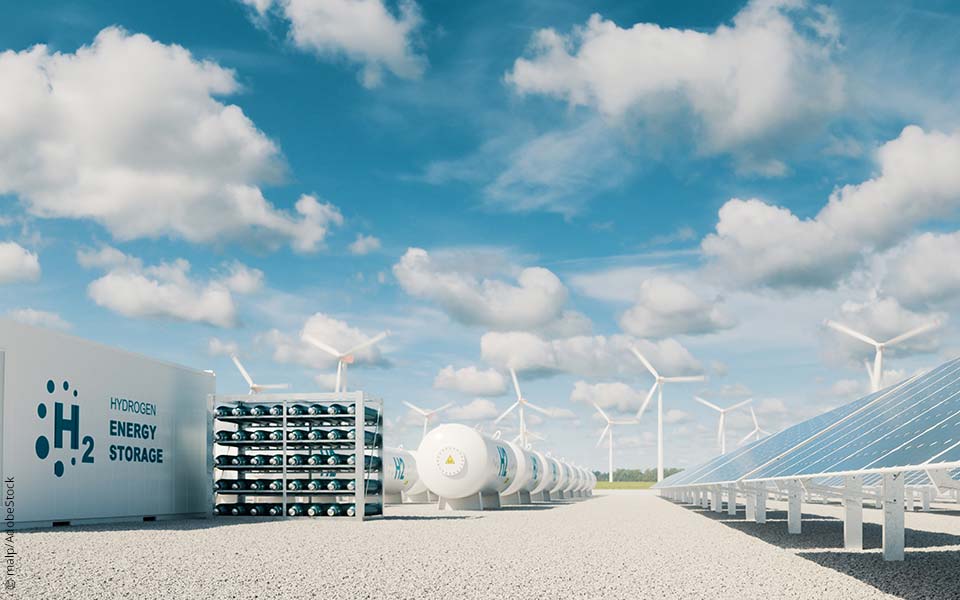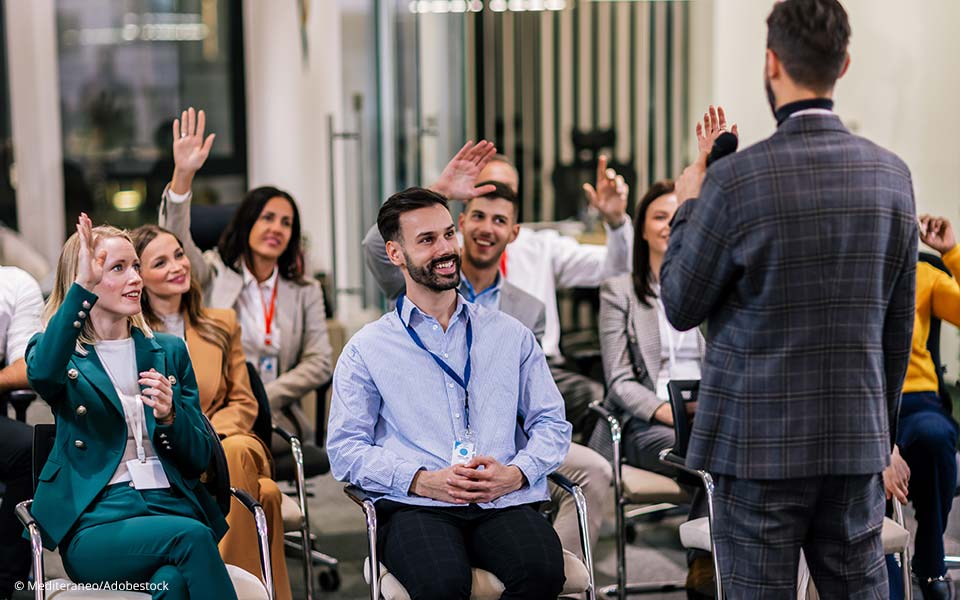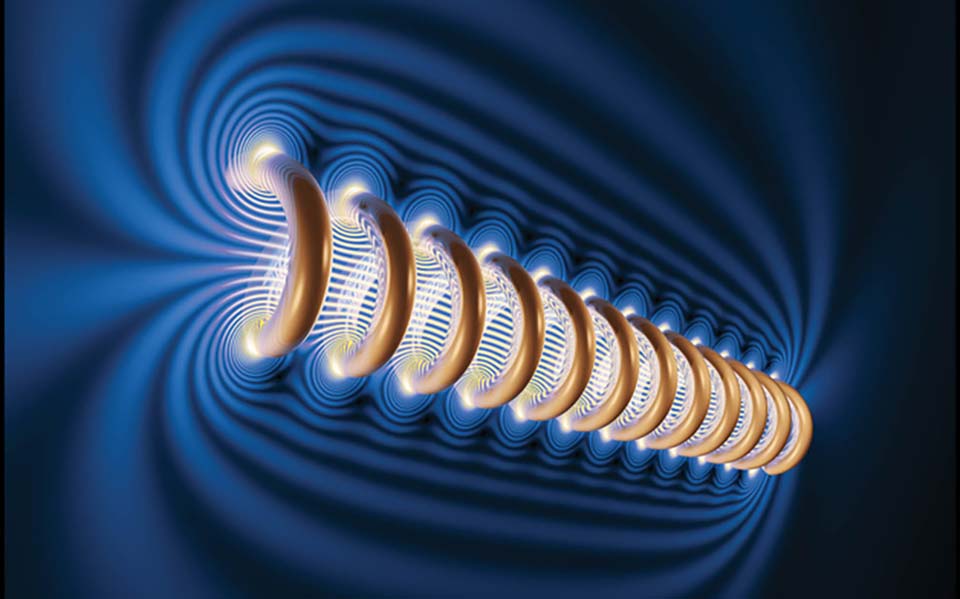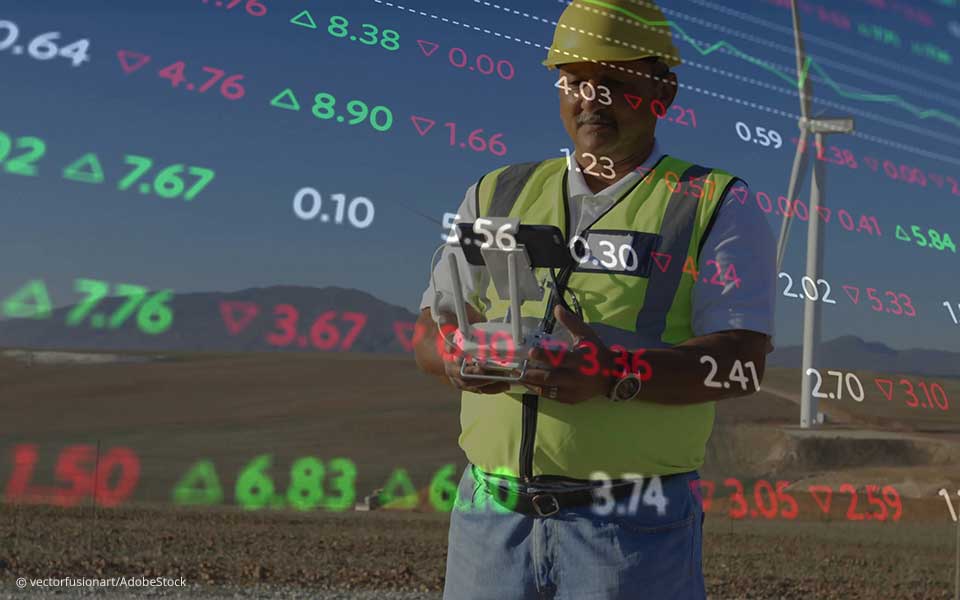
I’m Nicolas Kulig, currently completing my fourth semester of studying Clean Energy Processes, or CEP for short. CEP is a new study course at the Friedrich-Alexander-Universität in Erlangen, fully taught in English for both the master’s and the bachelor’s degree. The focus of the programme are different forms of Renewable Energies like solar power or wind power as well as any modern forms of chemical energy, like different fuel cells. These topics are first approached in a module called “Renewable Energies”, one of the modules specifically designed for CEP. It offers a first glimpse into the wide array of different energy source and storage possibilities. The main technology introduced here is Hydrogen as the energy carrier of the future, a point which is reinforced in every semester.
Fuel cells are introduced during the Electrochemistry lecture one semester later, a topic which is also extremely relevant for CEP students.
Other subjects in CEP are either just the basics like Math or Physics, or new combinations of more conventional courses like “Thermodynamics and Heat and Mass Transfer”, which gives a first look at power plants, their efficiencies and how to calculate them. The obvious difference in all lectures is the language spoken, but this is something that all of us Bachelor students prefer over our native tongue.
What all courses have in common is that they prove to be, for the most part, quite challenging. Naturally, the language plays a role, but the major difficulty of most classes is the complex and often fast-paced schedule. Especially lectures combining multiple courses are quite tough to master, since a lot of information is packed together in only a few lectures.
I personally enjoy learning in English and being part of an international- and future-oriented study programme. If someone is interested in these aspects, CEP is simply perfect for them.
All in all, it is a completely new, fresh, and modern study programme with an international orientation for anyone interested in the energy sector and the “green” future of our species.

Nach meinem Vortrag – worauf es in der Diskussion ankommt
Okay, geschafft: Mein Vortrag ist vorbei. Ich habe über meine Forschung zu molekularen Sensoren gesprochen. Die Folien haben funktioniert, das Publikum war aufmerksam. Jetzt kommt der Teil, den ich nie ganz kontrollieren kann: die Fragerunde. Wir spielen ein paar...

Elektrodynamik zum Üben und Verstehen
Die neue „Aufgabensammlung Elektrodynamik“ für ambitionierte Physikstudierende Wer Elektrodynamik wirklich verstehen will, muss rechnen – und zwar nicht nur Standardaufgaben, sondern auch solche, die über das Übliche hinausgehen. Genau das bietet die neue...

Leistungselektronik – eine Einführung
Von den Grundlagen bis zu den modernsten Anwendungen: Dieses Buch bietet einen umfassenden und praxisnahen Einstieg in die Welt der Leistungselektronik. Und: Durch das in ihm vermittelte Wissen treibt es Energiewende, Elektromobilität und Digitalisierung voran –...

Werkstoffwissenschaft: Die Geheimnisse der Phasenübergänge
Heute tauchen wir ein in die mysteriöse Welt der Phasenübergänge im festen Zustand. Fall 1: Die allotrope Umwandlung des SiO₂ Dieses unscheinbare Material – letztlich ist es Sand – hat eine dunkle Seite: Es kann seine Struktur verändern! Bei seiner allotropen...
